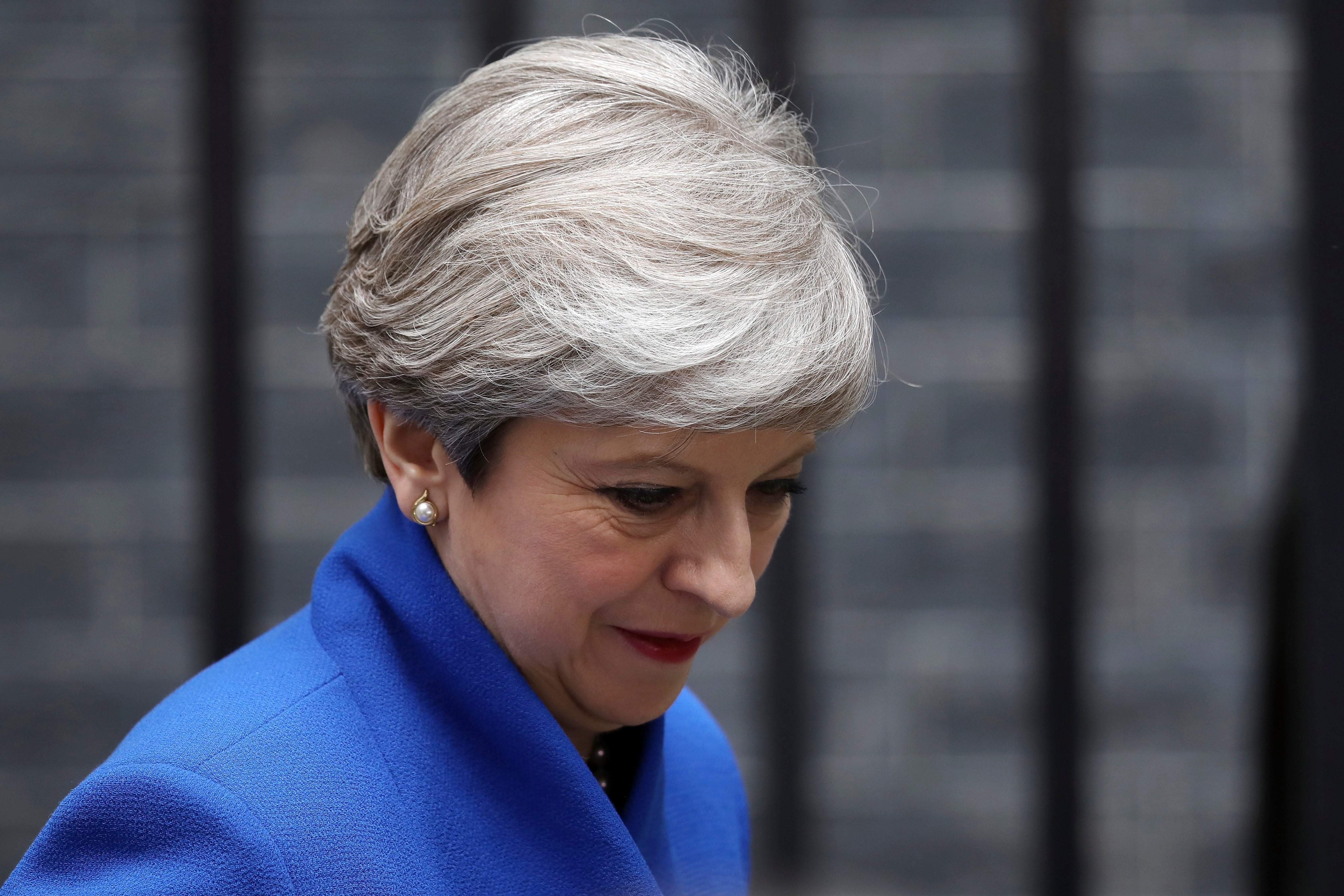LONDON — Expectations that the British military will face serious capability cuts amid budget woes have been in play for months. Now, with a mini-defense review coming to a conclusion, proposals are emerging about what may actually be axed in order to balance the books.
For the moment, the potential capability cuts remain media speculation, and some of it might turn out to be wide off the mark. But the new proposals to cut British firepower further, appearing mainly in The Times newspaper, are being treated seriously in London by analysts and others.
RELATED

Rumors seem to revolve heavily around possible cuts to the Royal Navy, with some predicting that the Royal Marine numbers will be cut substantially alongside the axing of the two amphibious assault ships HMS Albion and HMS Bulwark.
Over the weekend, The Times reported that Rear Adm. Alex Burton, commander of the U.K.’s Maritime Forces, resigned last month. He hinted that the Navy’s two remaining assault ships were in line for the axe in a recent tweet: “I can work around the temporary lack of a flat-top [aircraft carrier) but I couldn’t work around delivering theater entry without HMS Albion and HMS Bulwark.”
The departure of Burton has not yet been confirmed by the Ministry of Defence.
Axing the two assault ships would mean that the British lose the ability to deploy troops across the shoreline by landing craft. With the helicopter carrier HMS Ocean already due to be decommissioned earlier than expected, in 2018, the British would have to rely on one of the two new 65,000 tonne aircraft carriers now being readied to join the fleet to provide the deployment of troops by helicopter.
Other possible reductions to the Royal Navy’s already under resourced fleet of surface vessels include two minehunters, which could be retired, and an ocean survey ship that could be sold.
The Navy’s new fleet of 28 Leonardo-built Wildcat multi-purpose rotorcraft is also apparently being threatened with the axe, leaving the service to rely on the larger Merlin platform. The final Royal Navy Wildcat was only delivered last year. The helicopters are also used by the British Army.
A spokesman for Leonardo’s UK helicopter business said axing the Navy Wildcat’s would severely damage capabilities.
“It is for the government and the MoD to decide defense priorities but we believe it would be a massive loss to the Royal Navy’s capability if a decision is made to withdraw the Wildcat. Such a decision could also damage export prospects for the helicopter,” said a spokesman.
The British Army could also lose a chunk of its helicopter capabilities. Reports say that squadrons will be cut and the entire 34 strong Gazelle observation helicopter fleet retired next year.
The defense budget shortfall over the next 10 years is rumored to be at between £10 billion (U.S. $13.2 billion) and £30 billion (U.S. $39.5 billion), although to date, the MoD has yet to admit publicly it even has a problem.
The failure, so far, to achieve the £11 billion efficiency target set in the 2015 strategic defense and security review (SDSR) and the weakening of Sterling against the dollar post Brexit referendum are believed to be responsible, in part, for the shortfall.
RELATED

The British government is committed to an annual budget increase of 0.5 percent above inflation until 2022, but that’s reckoned not to be enough to fund an ambitious review of 2015.
Further adding to budgetary strain, the British are planning to spend £178 billion on equipment over the next 10 years with new ballistic missile submarines, F-35 fighters to equip the carriers and Type 26 and Type 31e frigate fleets.
The British government said in the SDSR that money saved by efficiency cuts (largely a euphemism for capability reductions) could be ploughed back into the budgets of the armed services.
But not all are confident such savings will materialize. Howard Wheeldon of Wheeldon Strategic Advisory pointed the finger at Defence Secretary Sir Michael Fallon as being part of the problem, saying if he couldn’t grip the situation he should go.
In a commentary published Oct. 9, Wheeldon called claims of defense investment a denial of a budget crisis.
He also stated: “Unless Sir Michael Fallon gets to grips with the worsening situation soon, particularly given the rising level of geo-political tensions and threats, and starts to bring some order, honesty, integrity and leadership into what appears to have been allowed to become a very disorderly situation, I am bound to consider that the only satisfactory way out for him would be [to] pass the mantle of the defence portfolio responsibility to someone who can restore confidence.”
Andrew Chuter is the United Kingdom correspondent for Defense News.








